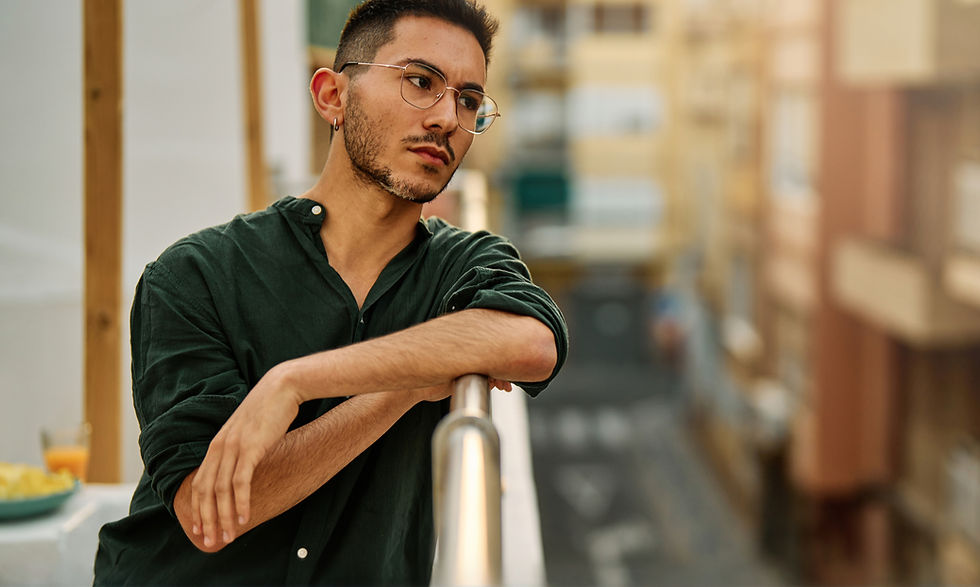Before the skeletons in the closet start shooting: Dealing with violence, sex and racism
- Jimmy Hill, LPC-MHSP

- Mar 25, 2021
- 3 min read

When the news first broke about the horrific Atlanta area gun rampage, I, like many of you, was filled with anger but sadly, not surprised. The abhorrent frequency of gun violence in this country has a way of desensitizing us to acts of violence.
As information began to emerge about the victims and subsequently the shooter, racism and sexual addiction became buzzwords in the news.
As a men’s mental health professional who specializes in areas of sexual addiction, I started cringing at the articles I read about motivation and the debate over racist intent. Because it’s so hard to sort through the sensationalist garbage for facts and useful information, I came up with three main takeaways from this situation.
It’s a Man Problem
First- I’ve said it before and I’ll say it again. The root of violent, gun-obsessed culture stems from our unhealthy patriarchal systems.
So much of what we see in therapy are struggles rooted in traditional masculine norms and psychological patriarchy that have devastating ripple effects on men’s mental health and sense of well-being.
The normalization of dominant and aggressive behavior in men coupled with the shaming of “weak” behaviors like asking for help create a nightmare scenario that breeds explosive, often violent results. The victims of this violence are all too often women whom the aggressor perceives to be challenging their male identity.
According to the World Health Organization, 1 in 3 women globally, “have been subjected to either physical and/or sexual intimate partner violence or non-partner sexual violence in their lifetime.” You likely know a woman who has been a victim of violence, and if you’re a decent dude, she may have even felt safe confiding this to you.
What you may not have considered though, is that you likely know a man who has been the perpetrator in one of these scenarios.
We have to normalize how to de-escalate these situations and seek help BEFORE a gun is involved.
Also, don’t get me started on gun legislation and mental health scape-goating...that’s for another post.
Sex Addiction is a Compulsion
There is no consensus around what is characterized as a sexual addiction or sexual compulsion.
Many individual clinicians and organizations have their own descriptions for this pattern of behaviors. Whatever a client, therapist or organization calls it, any behavior can become a compulsion - meaning you become incapable of controlling a normal behavior and it instead feels like it is controlling you.
For example, working out, eating, playing video games, and spending time on social media are not bad in their own right.
But, when engaging in those same behaviors to soothe uncomfortable emotional experiences or stress, the behavior can become compulsive and cause harmful psychological and physical problems for both the person engaging in them and the people they are closest to.
Compulsions, like sexual ones are merely symptoms of deeper issues, many of which stem from the toxic masculine norms I just mentioned. Therapy is a primary way to get to the bottom of these before they become so out of control that grabbing a gun seems like a solution.
Racism is REAL
The last point is one I’ve been thinking a lot about over the last few years. Racism is a problem that exists independently of patriarchy and sexual compulsion, but one that is often inextricably tied to the two due to the fetishization and dominance of minority women.
This clearly and absolutely played into the Atlanta shooter’s motivations. Period. Let’s not waste time squabbling about what the perpetrator said and instead LISTEN to marginalized groups, especially minority women, who are disproportionately the victims.
When I say listen, I mean actually shut up.
Pass the mic, take notes, and make plans both personally and professionally to identify ways to be an ally. And sometimes that’s telling your uncle that “happy ending” jokes about Asian massage therapists are actually offensive to you.
Finally, if we are to prevent these atrocities we must call out the stigmas around men’s mental health and sexuality so that they can be dealt with in a compassionate manner, instead of being closeted by shame and guilt until they erupt.
We can and must do better. Starting with ourselves, our friends, our family members.
People’s lives depend on it.







Comments